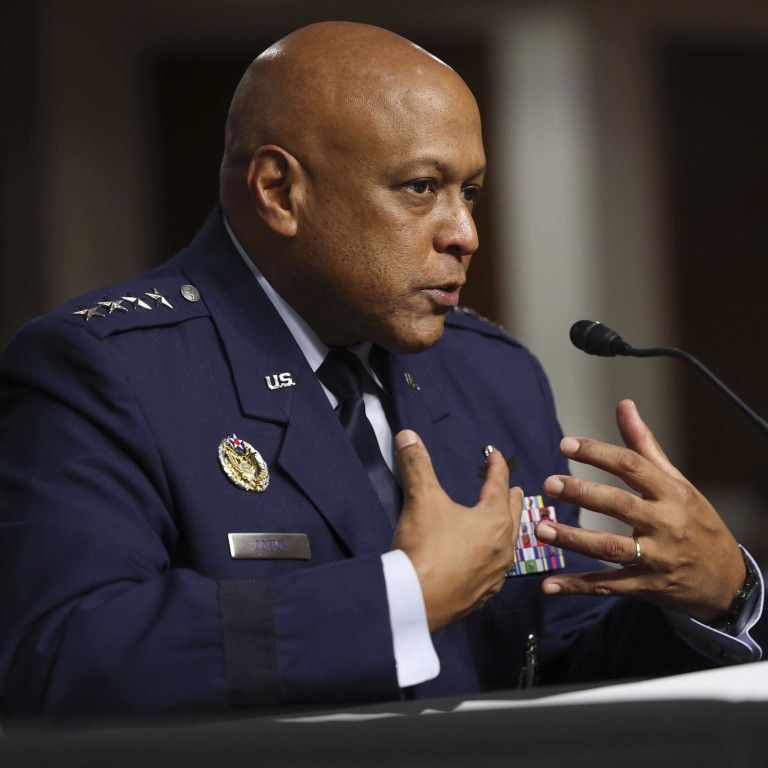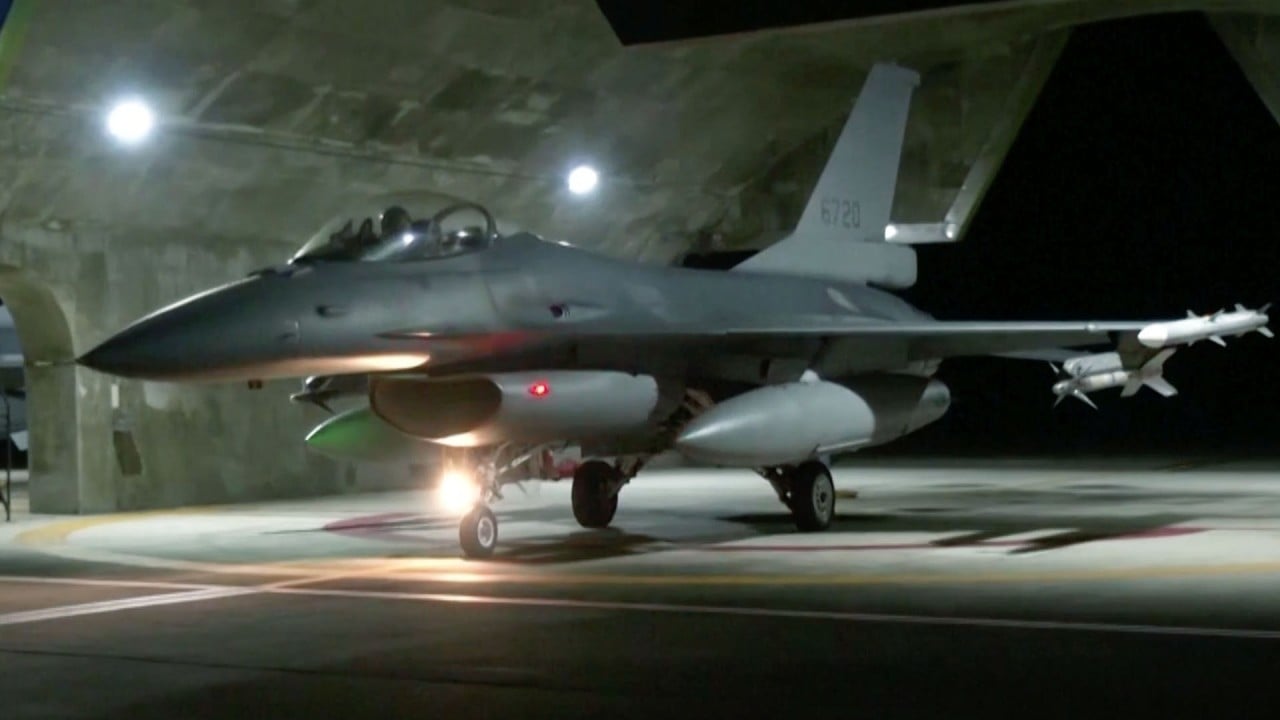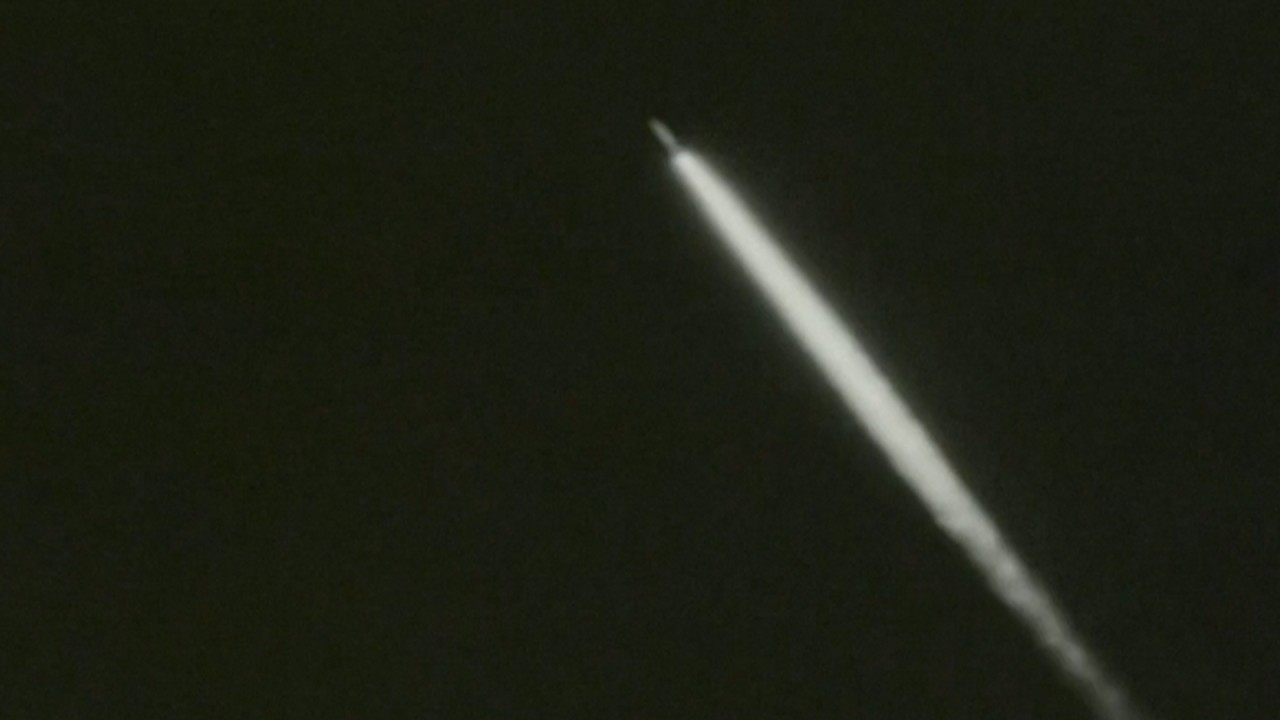
US general’s nuclear deterrence comments ‘may spur China to boost its arsenal’
- Anthony Cotton, the nominee to head strategic command, told a Senate hearing he agreed nuclear arms may help deter an attack on Taiwan
- Chinese analysts say it may be a sign that the US will develop more low-yield weapons to attack strategic targets, which would prompt Beijing to respond
Air Force General Anthony Cotton, the nominee to lead the Pentagon’s Strategic Command, which is responsible for nuclear operations, told a Senate confirmation hearing on Thursday: “At the end of the day, Russia and China both understand that we have a strong, resilient nuclear force that is offering deterrence to ourselves and extended deterrence to our enemies.”
PLA leaders unlikely to resist a move by Xi Jinping on Taiwan, US analyst says
He also agreed with a suggestion by Republican Senator Josh Hawley that nuclear arms combined with conventional denial methods could work “hand in hand” as a deterrence against China.
Cotton also said the US needed to recalibrate its nuclear defence strategy to account for China’s fast growing power, which has for the first time put the US in a three-way nuclear competition.
Song Zhongping, a former PLA instructor, said Cotton’s remark indicated that the US would keep promoting a low-yield nuclear bomb programme that started in 2018.
“It’s predictable that the US would use the low-yield, or strategic nuclear bombs, when it decides to intervene in a possible Taiwan contingency,” Song said.
“The Americans might use those strategic nuclear bombs to attack China’s key military bases and facilities just because of Beijing’s no first-use policy.”
Under the no first-use policy, China will only use nuclear weapons if it has already come under nuclear attack.
Song said Cotton’s remarks would push the PLA to “moderately increase the number of its nuclear warheads” as preparation for any possible clash.
EU faces growing pressure to stress test for mainland Chinese attack on Taiwan
However, Zhou Chenming, a researcher from the Yuan Wang military science and technology think tank in Beijing, said China was not likely to invest substantially in expanding its nuclear arsenal, but would spend more on improving its anti-ballistic missile technology for counter strikes.
“More nuclear bombs means higher maintenance costs because all nuclear weapons have expiry dates,” Zhou said, adding China would prefer to focus on improving its penetration capability or making use of technologies developed through its space programme.
“For example, applying an orbital transfer in outer space to ballistic missiles, makes them more difficult to intercept,” he said.
There has not been much progress in nuclear bomb technology since the United Nations signed the Comprehensive Nuclear Test Ban Treaty in September 1996, but China has found more room for manoeuvre in anti-ballistic missile development, according to Zhou.
China has not ratified the treaty, but declared that it had suspended nuclear tests in the atmosphere after completing its last successful one in July 1996.
However, Zhou Chenming, a researcher from the Yuan Wang military science and technology think tank in Beijing, said China would unlikely invest substantially on not invest too much on increasing nuclear warheads, but would spend more on improving its anti-ballistic missile technology for counter strike.
“More nuclear bombs mean higher maintenance cost because all nuclear weapons have expire date,” Zhou said, adding China would prefer focusing on improving tend to improve its penetration capability, making use of technologies developed through its space programme.



